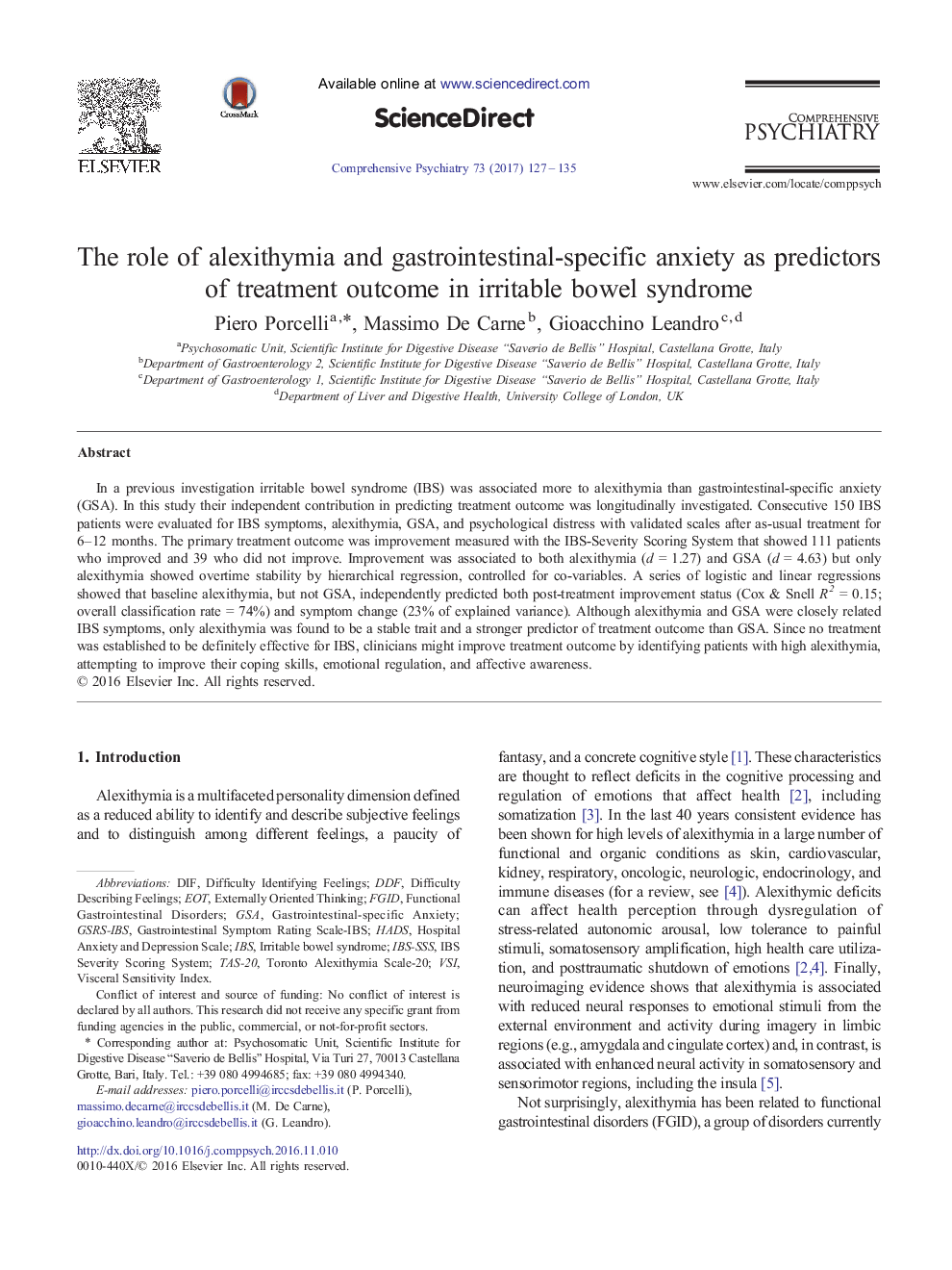| Article ID | Journal | Published Year | Pages | File Type |
|---|---|---|---|---|
| 4930268 | Comprehensive Psychiatry | 2017 | 9 Pages |
In a previous investigation irritable bowel syndrome (IBS) was associated more to alexithymia than gastrointestinal-specific anxiety (GSA). In this study their independent contribution in predicting treatment outcome was longitudinally investigated. Consecutive 150 IBS patients were evaluated for IBS symptoms, alexithymia, GSA, and psychological distress with validated scales after as-usual treatment for 6-12 months. The primary treatment outcome was improvement measured with the IBS-Severity Scoring System that showed 111 patients who improved and 39 who did not improve. Improvement was associated to both alexithymia (d = 1.27) and GSA (d = 4.63) but only alexithymia showed overtime stability by hierarchical regression, controlled for co-variables. A series of logistic and linear regressions showed that baseline alexithymia, but not GSA, independently predicted both post-treatment improvement status (Cox & Snell R2 = 0.15; overall classification rate = 74%) and symptom change (23% of explained variance). Although alexithymia and GSA were closely related IBS symptoms, only alexithymia was found to be a stable trait and a stronger predictor of treatment outcome than GSA. Since no treatment was established to be definitely effective for IBS, clinicians might improve treatment outcome by identifying patients with high alexithymia, attempting to improve their coping skills, emotional regulation, and affective awareness.
